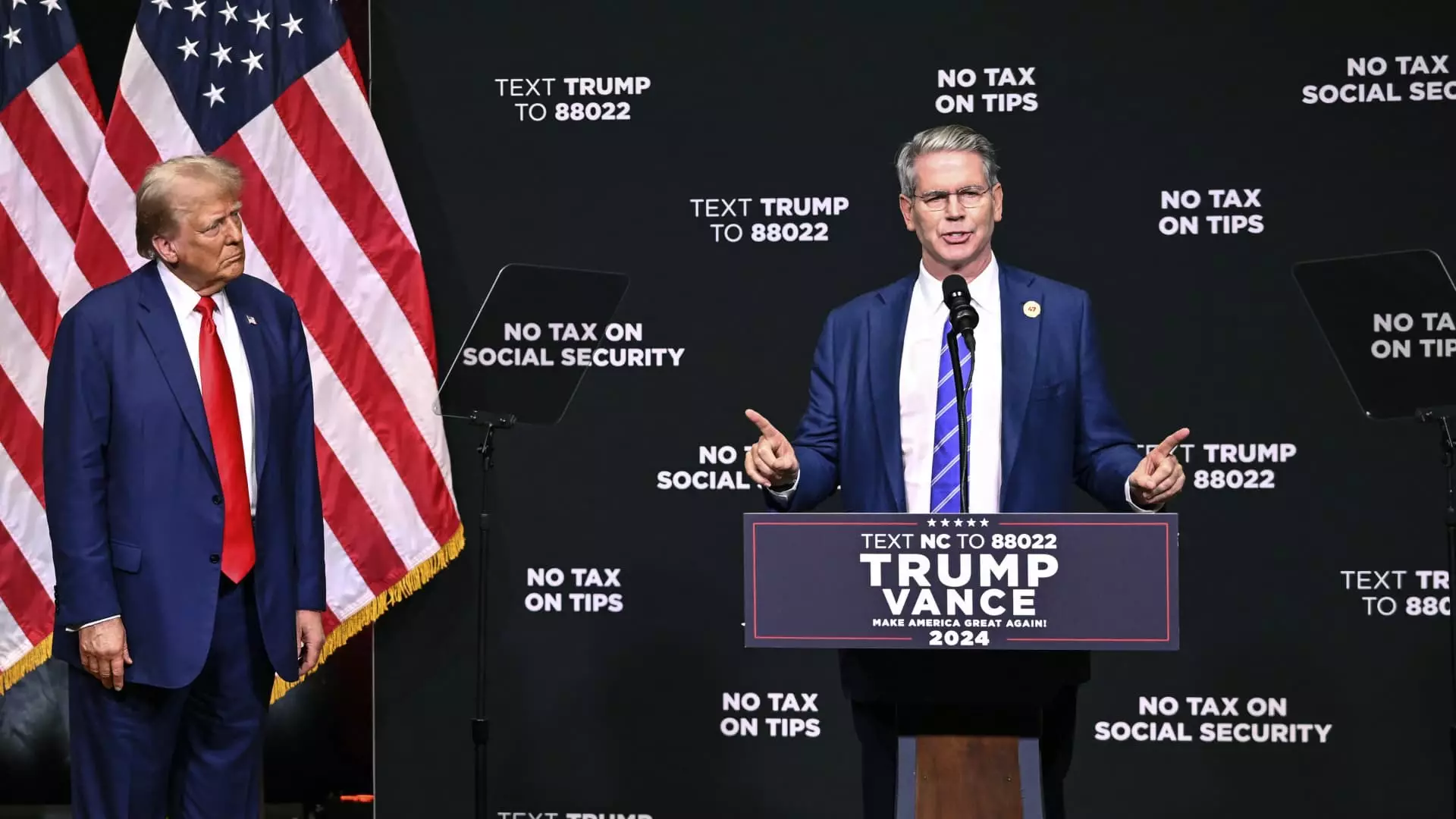The announcement of Scott Bessent as President-elect Donald Trump’s intended nominee for Treasury Secretary marks a significant moment in U.S. economic policy. With a background rooted deeply in the financial markets as the founder of Key Square Group, Bessent is not only a major player on Wall Street but also a staunch ally of Trump’s economic ideology. His appointment comes at a time when the U.S. economy faces formidable challenges, including burgeoning debt and a fluctuating economic landscape, making Bessent’s strategic decisions critical for the nation’s fiscal stability.
At 62, Bessent has garnered respect in the investment world primarily through his experience and expertise in navigating complex financial frameworks. His previous role as chief investment officer for George Soros’ fund places him in a unique position to leverage insights drawn from a global perspective, although this affiliation might raise eyebrows among certain political factions. Trump characterized Bessent as “one of the World’s foremost International Investors and Geopolitical and Economic Strategists,” a statement underscoring both his credentials and the high expectations surrounding his potential leadership at the Treasury.
Bessent’s strategy appears aligned with Trump’s vision of enhancing American competitiveness through gradual tariffs and deregulation, a method some may argue reflects an outdated view of economic strategy in an increasingly globalized economy. His support for energy independence and manufacturing revival resonates well with traditional Republican ideals and could foster a shift in how America engages with its trade partners.
However, the reality facing Bessent is complex. The current U.S. debt has surpassed $36 trillion, with public debt alone exceeding $28 trillion. As he assumes the Treasury position, Bessent will need to confront a fiscal deficit expected to approach $2 trillion by fiscal 2025. Navigating these figures is paramount as he aims to foster economic growth without exacerbating the debt crisis. This dichotomy poses the essential question: Can he effectively balance robust economic development while safeguarding the fiscal integrity of the country?
The role of Treasury Secretary transcends merely managing financial instability; it includes supervision of financial institutions and combating financial crimes, tasks that require a firm grasp of both regulatory frameworks and market dynamics. Bessent’s expertise may well lend itself to discerning and mitigating these multifaceted issues, assuming he can assemble a capable team and implement a cohesive strategy that aligns with the administration’s broader policies.
Despite the apparent qualifications and supportive statements from Trump regarding Bessent, the selection isn’t without dissent. Discontent has emerged among Trump’s inner circle, notably from influential figures such as Elon Musk, who has shown favor towards another candidate, Howard Lutnick. Additional criticisms surrounding Bessent’s perceived lack of staunch support for tariffs raise questions about the internal consistency of Trump’s economic directives.
The tension within Trump’s economic team reflects broader ideological divisions that could complicate Bessent’s efforts to implement the President-elect’s agenda. The interplay of these identities—both as an economic strategist and as a Trump loyalist—will be a crucial factor in how effectively he can unify these disparate factions while pushing forward with reforms.
As Scott Bessent stands poised to take on the Treasury Secretary role, his performance will undoubtedly shape the trajectory of U.S. economic policy in the coming years. The challenges that await him are substantial, stretching beyond mere numbers to the very fabric of how American economic interests interact with global markets and domestic agendas. For Bessent to succeed, he must channel his substantial financial acumen while navigating the complexities of political expectations and competing interests within Trump’s administration.
Ultimately, the forthcoming period will be one of crucial scrutiny, as both supporters and critics will monitor how Bessent’s strategies unfold against the backdrop of an evolving economic landscape. The stakes, framed by an unprecedented debt situation and underlying economic issues, could define Bessent’s legacy as a Treasury Secretary in the turbulent waters of modern U.S. governance.



Leave a Reply